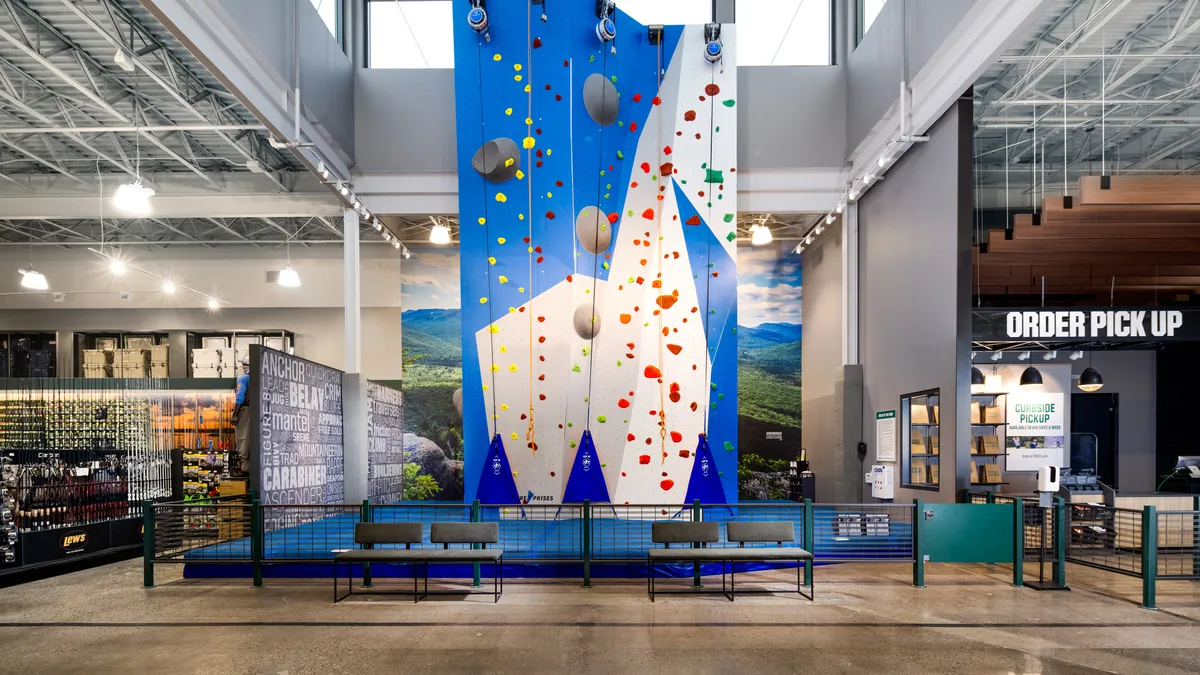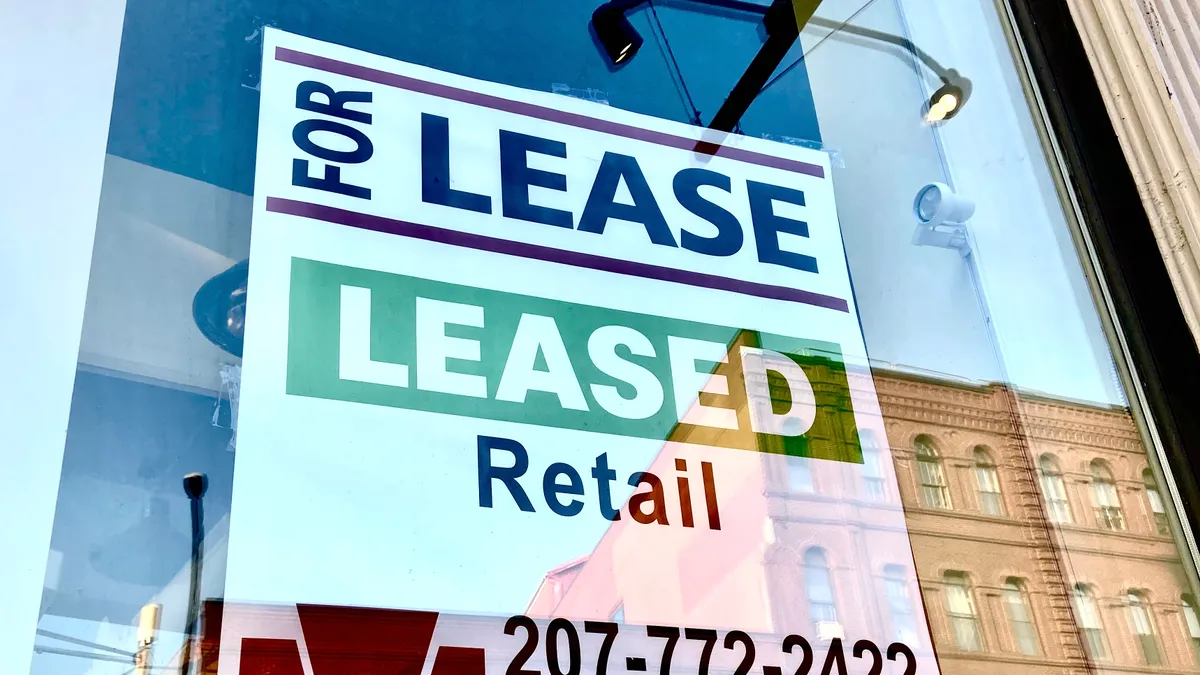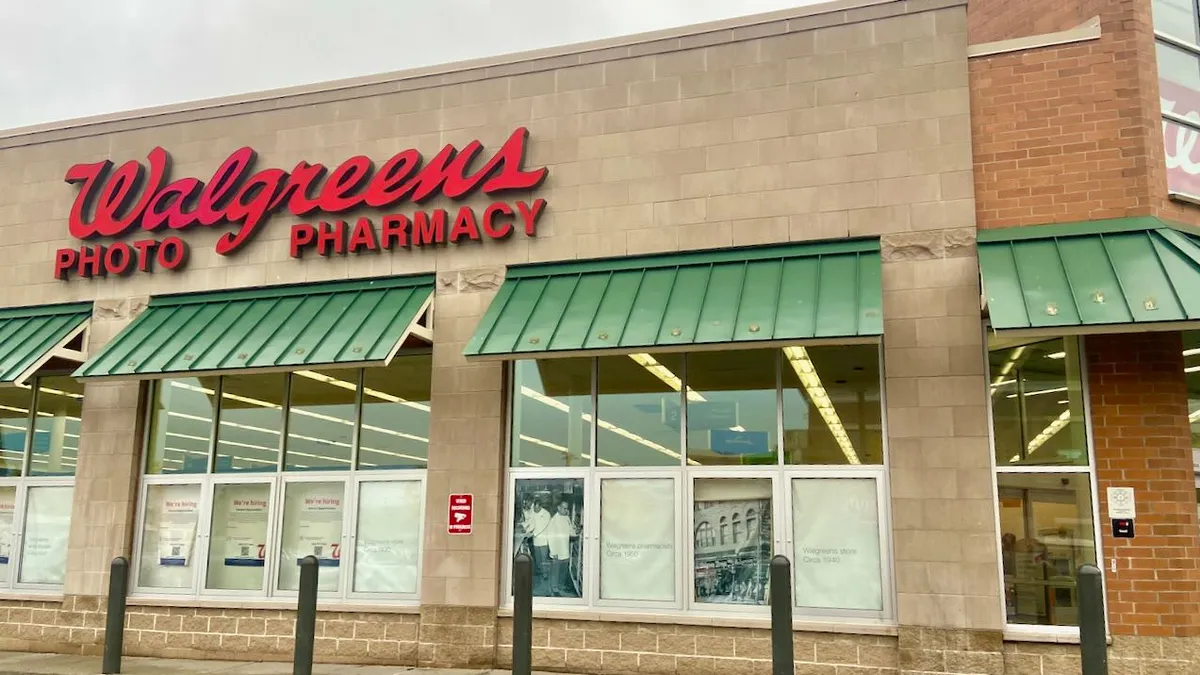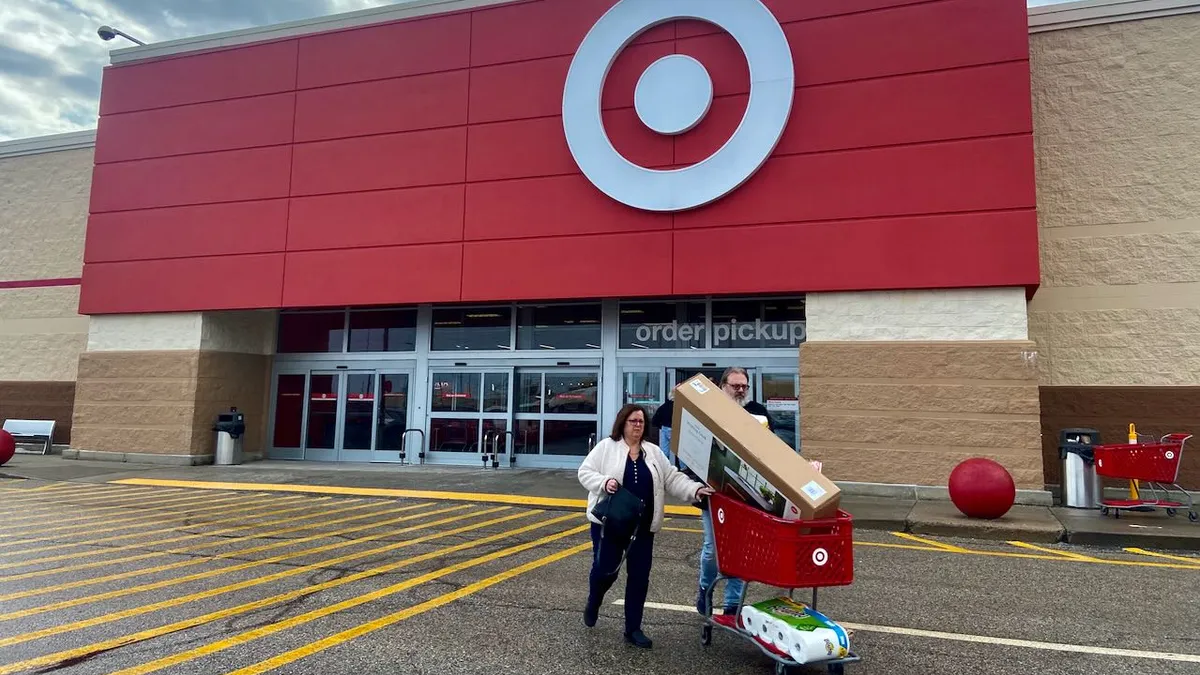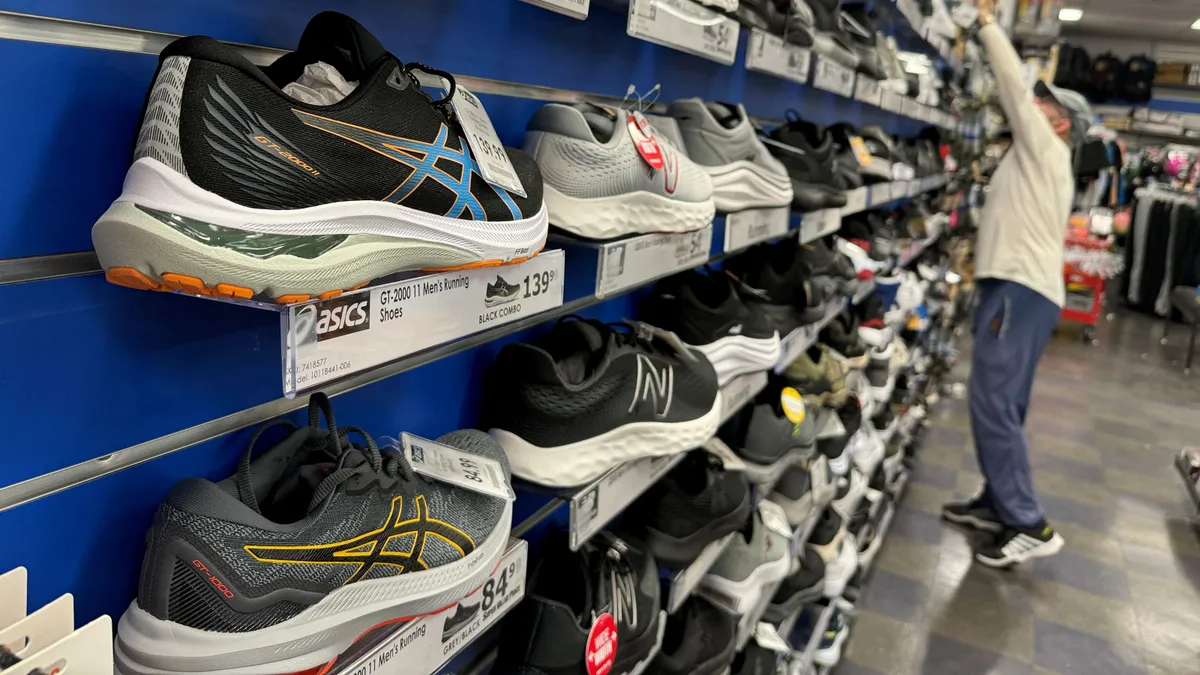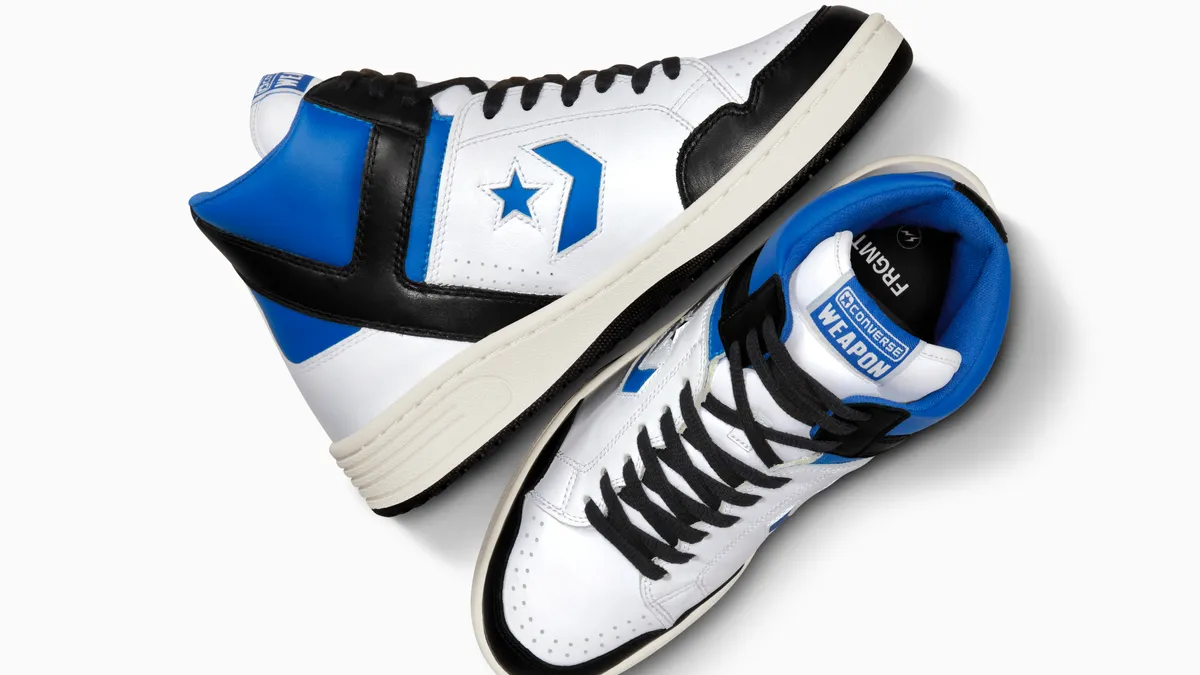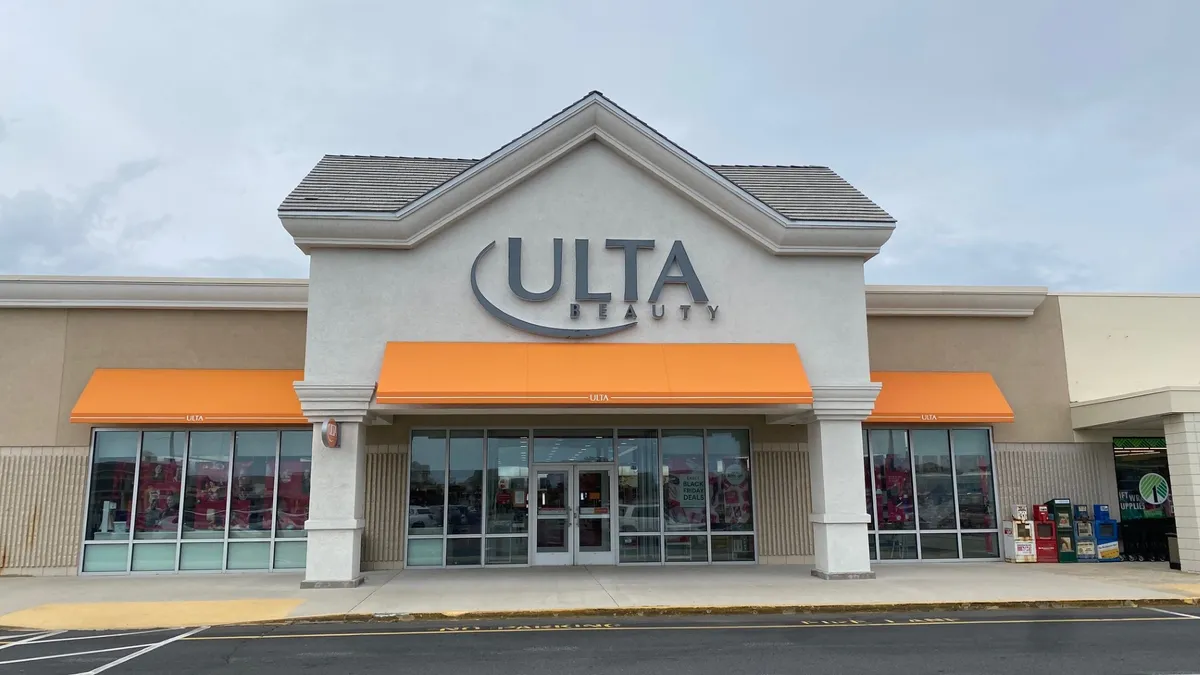Since June of last year, Dick's has debuted four new store concepts, announced the launch timeframe for a fifth, set up a new men's private label, signed brand ambassadors for two owned brands, all while in the midst of store revamps.
It's a lot for any retailer, especially when two of the concepts are quite involved. Dick's first House of Sport location opened in April, with experiential features like a turf field, a rock climbing wall and a batting cage. The company's planned Public Lands concept, which is expected to debut in the second half of the year, is an entirely new banner focused on the outdoors space.
While the announcements seem from the outside to be coming in rapid succession, some have been planned for years behind the scenes. According to Warren Cheng, a consumer softlines analyst with Evercore ISI, House of Sport and Public Lands have been in the works long before the pandemic. The multiple off-price concepts Dick's has launched in recent months — two, Overtime by Dick's Sporting Goods and Dick's Sporting Goods Warehouse, debuted in June last year and one, Going, Going, Gone, debuted in May — are likely products of the pandemic.
"All three of those I think were ways for them to deal with the pandemic and the extra clearance that they were going to have," Cheng said. "And they've done remarkably well, so I would expect at least one of those to stay as a clearance vehicle."
Opening experiential flagship stores like House of Sport, revamping current locations to include upgraded soccer shops and adding more experiential features at Golf Galaxy stores are bigger investments, but they might be necessary ones. Adrienne Yih, senior analyst of U.S. retail and e-commerce at Barclays, pointed to the need for retailers to create emotional connections with consumers in their physical stores and provide them with a reason to come in rather than buying online.
"The proven concept of the business has never been stronger, and has never had a stronger tie to Nike."

Adrienne Yih
Senior Analyst of U.S. Retail and E-commerce at Barclays
The amount of money these investments will take is not a concern at the moment, according to Yih. That's thanks to Dick's strong performance of late, and its deep relationship with some of the top national brands, including Nike, which during its most recent earnings call named Dick's among three "large strategic partners" that it works closely with in wholesale.
"Dick's has such an incredibly strong balance sheet that you can take some of these cash risks, and at the end of the day, the percentage of sales and EBIT that's going to be coming from these tests is insignificant to the strength of what we're currently seeing at 99% of the core business," Yih said. "The proven concept of the business has never been stronger, and has never had a stronger tie to Nike."
That's not to say that there are no risks involved. Only that Dick's is capable of withstanding the blow from any of these investments that don't pan out.
"A lot of the things we talked about today, I think will fail. It's not a 100% hit rate," Cheng said. "But if you want to be innovative, if you want to be forward-thinking and you want to meet the customers needs in the future, even though you don't quite know what they look like yet, then you kind of have to have that mentality."
Breaking down the store concepts
While Dick's is testing five different store concepts at the moment, they don't all serve the same purpose. The retailer is experimenting with off-price, dabbling in high-touch customer experiences and entering new segments in especially high demand.
The off-price opportunity
Overtime, Warehouse and Going, Going, Gone are all off-price related and, according to CEO Lauren Hobart, are "truly just a test."
Overtime offers up to 75% off apparel, footwear and equipment from Nike, Adidas, Under Armour and other brands. Warehouse locations feature up to 90% off of "customer-favorite footwear and apparel brands." And Going, Going, Gone offers "surprising deals on unique finds in footwear and apparel from the brands customers have enjoyed shopping" at Dick's over the years, according to press releases at the time of their debuts.
Inspired by the pandemic-induced need to keep inventory moving, off-price could end up being a lucrative long-term business, no matter how many of the concepts stick around.
"The sports industry does not have a robust off-price business," Matt Powell, senior industry adviser for sports with the NPD Group, said via email. "The new off-price concepts can keep inventory clean in the full-price stores and exploit an opportunity to buy and sell off price as well."
According to Yih, it also allows Dick's to reach a value-based customer, but that means making sure the value quotient is right.
"TJX, Burlington and Ross have really excelled because they're giving you value. You're not getting a cheap thing, you're paying for things that you think are worth more and therefore it's valuable to you," Yih said. "If I pay $10 for a T-shirt that I think is worth $10, that's very different than if I pay $10 for a T-shirt that I think is worth $20."
House of Sport and experiential retailing
While off-price could be a profitable venture, making money may not be the only focus for its House of Sport concept. The plethora of experiences offered — a putting green, personal appointments with wellness experts, yoga classes, rock climbing, batting cages, and equipment fixes like racquet restringing and baseball glove steaming — means that much of the gigantic store footprint doesn't generate revenue, according to Cheng.
"I think their purpose is to say, 'We're going to put every kind of experience into this store. It's going to help us figure out which ones of these are the biggest traffic drivers, are the ones that people care about. And then we're going to use them more as like a testing and learning center to figure out which of these experiential elements to scale out across the chain,'" Cheng said. "So I think that's much more the motivation than having these be stand-alone commercially viable."
For that reason, House of Sport is unlikely to make up a significant portion of Dick's store fleet, according to analysts. Especially considering the square footage required for one of these locations. GlobalData Managing Director Neil Saunders praised Dick's innovation and investment strategy in emailed comments on the retailer's most recent earnings report, citing House of Sport and the off-price concepts.
"While we do not believe these segments will ever be as large as the core business, they do provide some new avenues for growth and will help the company in the year ahead," Saunders wrote at the time.
Although House of Sport is clearly a different model with a different purpose — more akin to Lululemon's experiential megastores — there is still a need for the concept to prove itself. Especially before Dick's pursues a large-scale rollout of it.
"The days of creating flagships and these sort of brand identity stores that don't necessarily make a whole lot of profit: Those days are over," Yih said. "If I am going to invest capital, I want to see a profit return on that, that is equal in size or could potentially be profitable over the long haul."
Public Lands and the outdoors opportunity
According to Cheng, Dick's is particularly good at finding gaps in the market and filling them. Public Lands is a potential example of that. The first stores in the concept will replace Field & Stream locations, a business the retailer is exiting as it moves away from hunting more broadly.
Already, Public Lands is "hitting all the right notes for a consumer who is not into hunting but wants to be outdoors," Powell said.
And it's an example of Dick's moving in the direction of its values. The same way the company took a stance on guns in the wake of the Parkland shooting in Florida, its new outdoors concept will champion environmental efforts. It also allows Dick's to move beyond team sports and athletics and into a new recreational activity area, according to Yih. Notably, the outdoors space has only been bolstered by the pandemic.
The move puts Dick's up against the likes of REI and Patagonia, which are well-established as outdoors retailers with environmental causes. But that doesn't mean there isn't room for Dick's in the space.
"What's fueling their decision to do this is they think that category is going to expand," Cheng said. "They're sort of betting on the increasing size of the pie outweighing the fact that it's going to take them a really long time to chip away from REI."
The store won't have the Dick's name behind it — it will launch as Public Lands — so the banner will have to tackle being a new name in the space and building up brand awareness and loyalty. However, that may not be that big of an obstacle if the concept shows initial success.
"I wouldn't underestimate the access to capital and the ability to put marketing dollars behind a new initiative to grab eyeballs and market share," Yih said.
The rest of the game plan
Fresh store concepts are not the only way Dick's is investing in its business. Revamps at current locations and an increased focus on private label offerings are also contributing to the retailer's dominance.
Dick's is arguably the last of its kind in the sporting goods space, as fellow national big-box stores like Sports Authority and others died out in recent years. There are some regional players, but Dick's has largely outlasted its principal competition, and its recent efforts are part of a bid to stay in that top spot.
In some ways, the company's largest competitors might now be the brands it sells, especially Nike and Adidas, which are increasingly looking for ways to sell directly to the consumer.
Dick's, too, is finding ways to glean higher margins by developing its own private labels, including Calia, DSG and VRST. The first is a women's-focused athletic lifestyle brand, the second is a family-oriented value-priced athletics brand and the last is a men's athletic lifestyle brand. The private label business is "a point of differentiation and a margin builder," Powell said, while Yih noted Dick's has one of the fastest growing private labels Barclays tracks.
Saunders wrote in May that Dick's apparel offering is "looking stronger than ever" with its combination of private labels and national brands. Dick's VRST private label just launched in March, and it mirrors the way a DTC brand sells, with its own dedicated e-commerce site in addition selling through Dick's website and stores.
"The introduction of new own-brands such as VRST has helped to elevate the proposition and has allowed Dick's to differentiate from rivals," Saunders wrote. "This effort has been important in a market that has steadily become more crowded as other retailers have entered the athleisure and sporting apparel arena."
Dick's is also putting more marketing power behind those private labels, naming brand ambassadors for DSG and VRST. That included signing DeVonta Smith, the 10th pick in the 2021 NFL Draft, to rep its new VRST line. While that might hint at stronger competition between Dick's and the likes of Nike and Adidas, the private labels are not meant to be direct competitors to the national brands Dick's sells, according to Cheng. Rather, DSG fills part of the hole left by department stores, and VRST is a more direct competitor to a company like Lululemon than Nike.
"If you're outfitting your child for the baseball season, you can't just do it at a Nike store."

Warren Cheng
Consumer Softlines Analyst at Evercore ISI
Dick's wants to keep the top brands it sells happy, Cheng said, but if there are gaps in its merchandise offering where Dick's "can do it better with private label," the company will pursue that. Currently, Dick's private label offering is about 15% of its total, with a goal of reaching between 20% or 25% — a point Cheng doesn't think the retailer will go beyond.
"I think they're going after a different target market that's going to broaden out their total accessible market," Yih said of Dick's private label strategy. "And it'd be very hard to say that their private label brands will rise to compete to the level of the traffic drivers. The branded product are the traffic drivers to the stores and then you hope that they pick up some private label while they're there."
Dick's also holds a slightly different place in the market, which keeps it from becoming directly competitive with Nike. The question of whether Nike's DTC ambitions could hurt Dick's is "a really controversial topic" among analysts, according to Cheng. He believes that Dick's will "be around forever," along with a few others like Foot Locker (which also has a strong relationship with Nike) that offer premium multi-brand retail experiences.
"If you're outfitting your child for the baseball season, you can't just do it at a Nike store, because maybe they like the Adidas gloves, the Easton bat and the Nike cleats, right?" Cheng said. "There are some things in athletic retail that I think have to be multi-brand forever — and I think that's one of them."
Susquehanna Financial Group in June likewise espoused confidence in Dick's market position, saying in emailed comments that the company "will be the sole surviving national sporting goods retailer post crisis" and will "continue to gain significant market share from smaller, under-capitalized players, many of whom have struggled during the pandemic."
In fact, one of the things that is keeping Dick's at the top of the wholesale partner list for national brands is the company's in-store experience. That will likely only improve as Dick's looks to revamp its current locations with more premium services. The retailer is rolling out more higher-end soccer shops inside some of its Dick's stores, which feature a larger cleat shop, specially trained soccer associates and, in some places, soccer trial cages.
Its Golf Galaxy stores are likewise getting more upgraded services, including hitting bays, golf lessons, and TrackMan and BioMech technologies.
"If you can offer those experiential elements, even if they're not revenue generating, that's where you're going to win versus your competition," Cheng said. "It's almost like you trade off the square footage in the store that you could be making money on for having a more relevant store and taking away your competition's market share."



